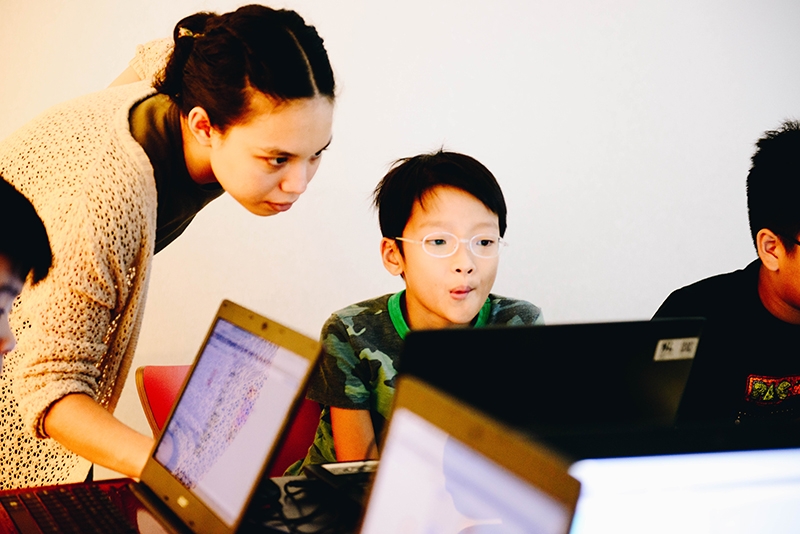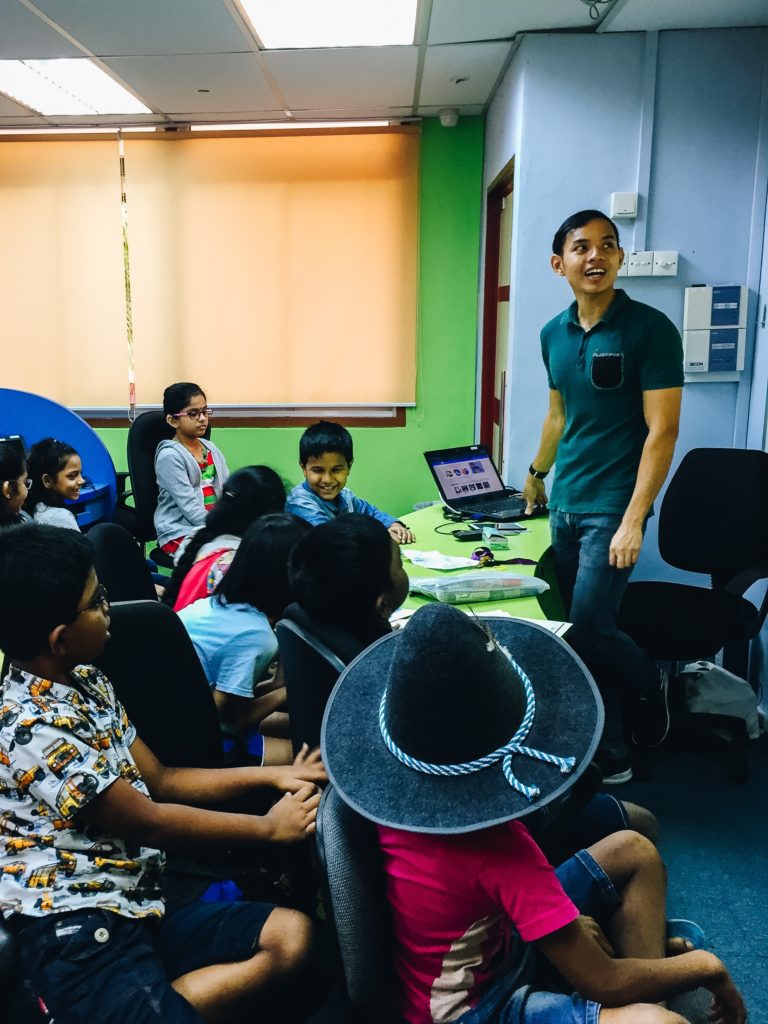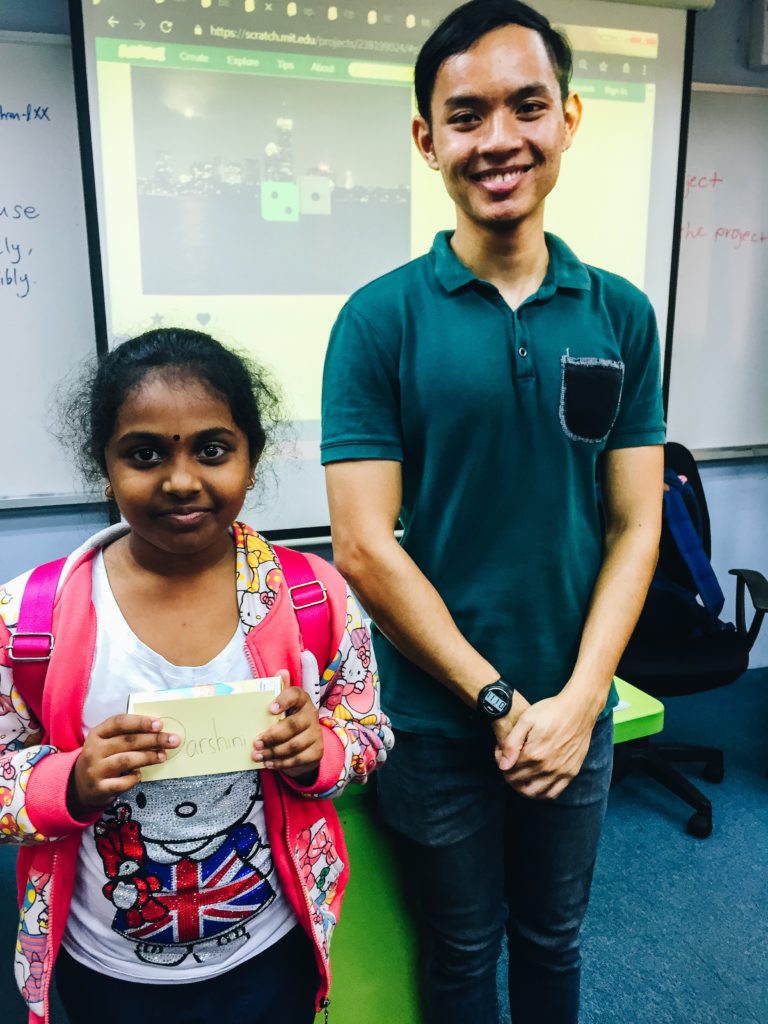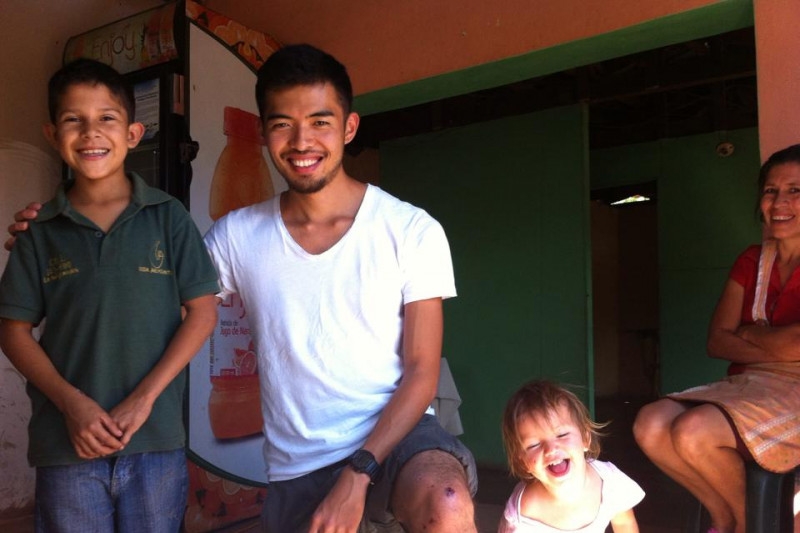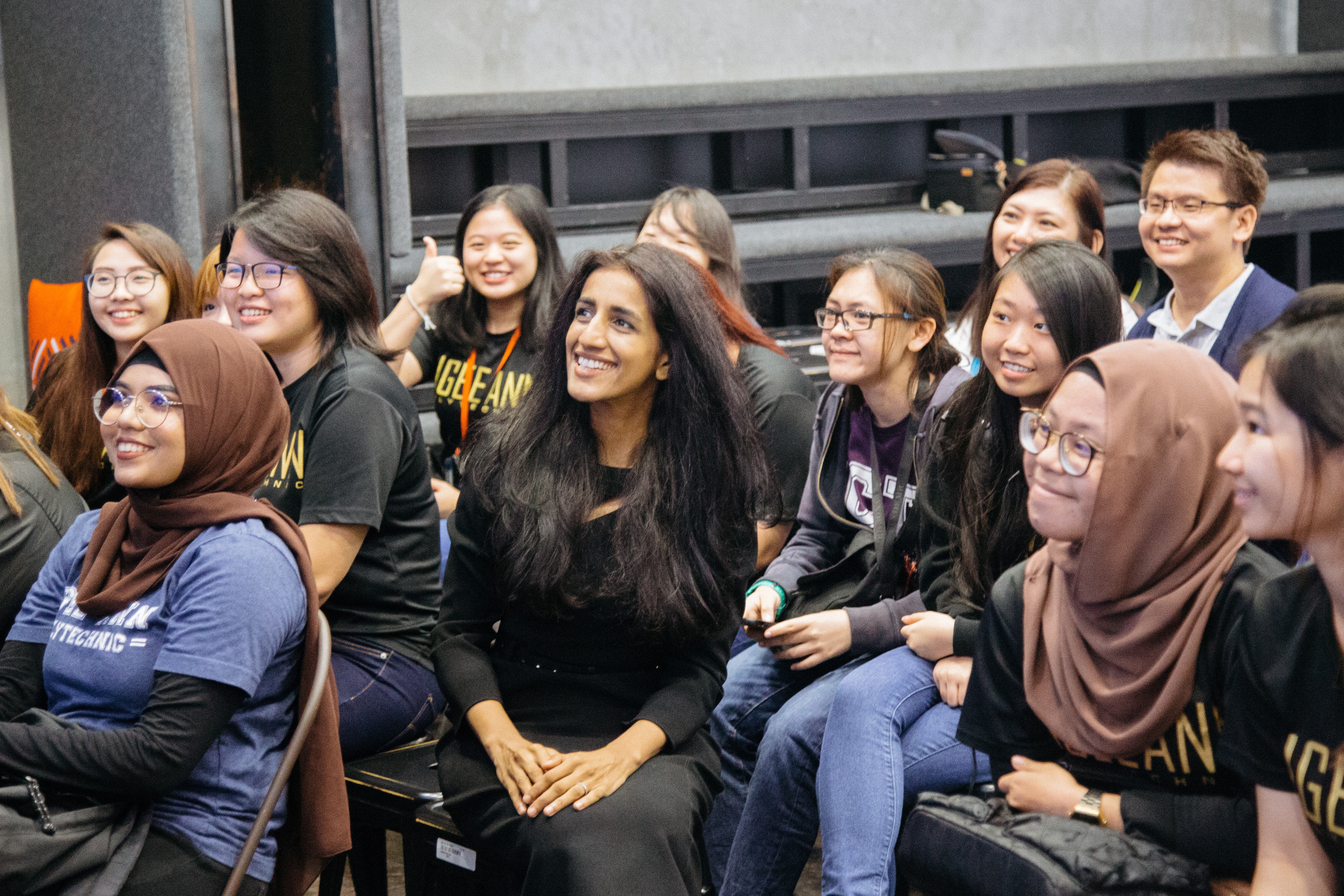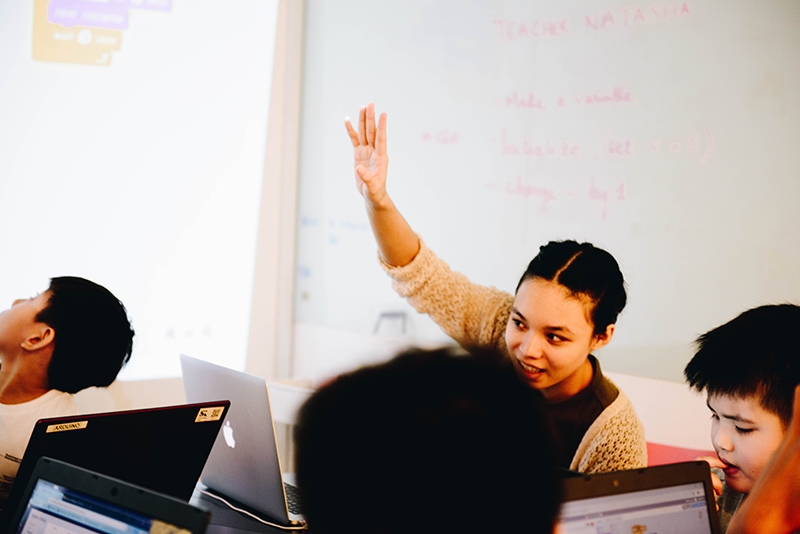
Hear from some of the people who made Code in the Community possible, and what drives them to use coding as a medium to make an impact.
Code in the Community is a Google-sponsored program which aims to get Singaporean kids from lower-income families excited about technology’s potential and unlock their natural learning abilities.
This is the first in our #codeinthecommunity series of articles exploring what it means and what it takes to create access to computer science and computational thinking for communities that might not typically have these opportunities. We’ll be sharing stories beyond the impact metrics and hear from some of the people who made Code in the Community possible.
—
What does it take to unlock the potential and love of learning in kids across different levels of socio-economic status, while teaching them some valuable coding skills along the way?
When we began running Code in the Community, we faced the daunting challenge of finding the instructors needed to fuel multiple 10-week intensives for 1200 students across 15 locations. Aside from the support of our partners Google, IMDA, and the local self-help groups, we knew that more often than not, what makes or breaks a programme is the people.
Having gone through the education system ourselves, we’re familiar with how encountering a discouraging teacher and a negative experience as a kid can turn one off a subject for life. In running Code for the Community, we carried the privilege and responsibility for making sure that what would be many of these kids’ first touchpoint with coding would be the start, rather than the end of a journey, where they would learn more than just code, but hopefully creativity, inventiveness, and resourcefulness that would put them in good stead for life.
With that in mind, we set out to find the 212 volunteers who would persist to make this a reality, and infect kids with the sparkle in their eye. From an engineer with 25 years of experience in programming to a university student with none, and from passionate groups of corporates and a self-taught teenage competitive programmer – our call for volunteers brought home the message that it takes a village to raise up children and communities.
With the next run of Code in the Community around the corner, we caught up with some of our superstar volunteer instructors to find out about their experience, and what drives them to use coding to make a medium to make an impact:
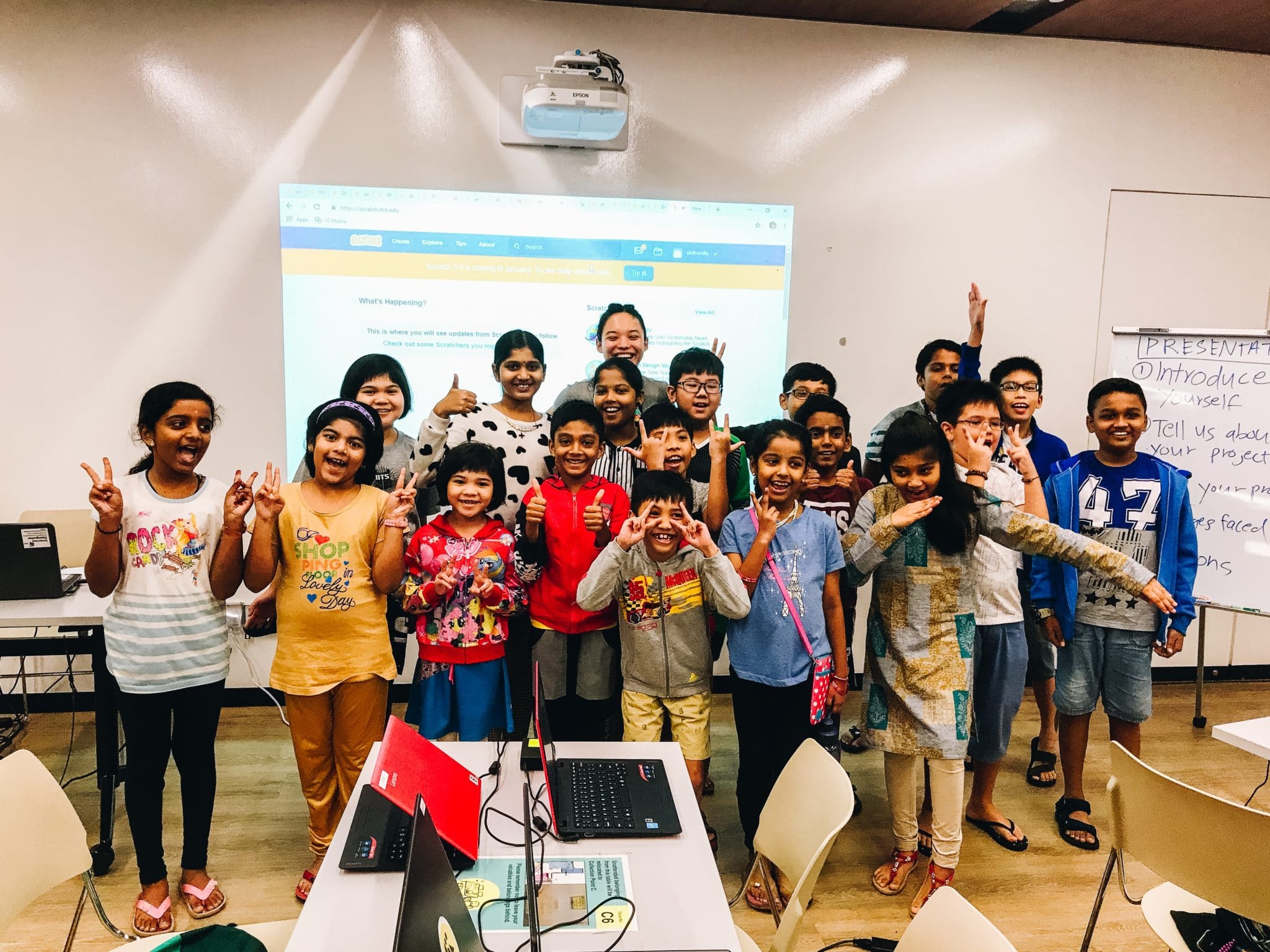
Swe, a Computer Science & Cybersecurity student:
“I just wanna show kids that this is a possible future for you – you can make this into a career. I’m just someone like you who just grew up. I do these things and it’s totally possible for you too.
This entire journey has uphill, that’s why I’m still here. I really enjoy hanging out with the kids and I get fulfilment from knowing that I explained something to them that was kind of meaningful to them so they have that ‘aha’ type of moment.
It’s good that these opportunities are given to kids whom these programmes wouldn’t be accessible to. Exposure is really good – when I was younger my family was poor but when we kind of got more money along the way, I got exposed to more things… the types of people we meet, the types of professions they have, the possibilities we can imagine in this world.
To just see something different, know it’s possible, makes it accessible to you.
Access to little things like learning programming makes a huge difference in the life of kids. If you don’t expose them to these things, they never develop that interest and they won’t pursue it further. So you need to kind of put them on that path – a lot of kids don’t get put on that path and it’s just because of where and who they’re born to.”
Swe’s family moved to Singapore when she was 11. Having experienced learning difficulties as a child, she’s passionate about making learning relevant for students, and bridging technology and education to improve access. After volunteering as an instructor for Code in the Community, she joined Saturday Kids as a full-time instructor.
Haris, a software engineer:
“I was kind of from an underprivileged background when I was young. People also did the same thing: they helped me, tutored me, took me on outings – so I just wanna give back.There’s a high demand for programmers in Singapore – it’s just perfect time and opportunity: I get to be a programmer and I get to teach programming.
In programming, you get to make big problems small, manageable, problems. When you programme, there are bound to be bugs, so you learn a bit of grit. You learn that the more time you invest in a problem, the more likely you are to solve it. You learn that your problems will slowly, eventually be solved. You learn not to be stressed, and just to think of the first small step you can take.
My takeaway from Code in the Community is not to care just about the end product – but the process.
Code in the Community is a good opportunity for kids to be exposed and gain hands-on experience with programming. Other than in school, some of them might not have a computer at home; some might not have any opportunity to programme stuff on their own. Code in the Community also helps them be creative because in Scratch you can create different stuff – they can create their own games, most of them can colour their own characters – it builds their creativity. They have this opportunity to explore. When they have exposure to other subjects outside academics they can tick the checklist off. Am I interested? Am I not interested? At least they have some exposure.
This experience makes me more motivated to teach kids or to mentor them if I have the chance. It makes me more motivated to teach these kids programming, or whatever values I can impart.”
Haris studied Applied Drama and Psychology before pivoting to a career as a programmer. Currently a software engineer at pslove, he combines his passion for teaching kids and programming as an instructor for Code in the Community.
Nichole, a student majoring in Geography:
“As someone who never coded in my entire life, I wanted to challenge myself and learn more about new pathways in education… so I decided to start with Scratch, from scratch. Scratch is a really beginner-friendly platform; its block-based so you don’t have to worry about spelling and spacing. It’s more about getting to know the various blocks and functions, how you can put them all together in different ways and make your very own cool and customizable projects! It just blows my mind how these people can make such dynamic projects with the same blocks available.
There were kids of varying levels, some kids had some prior experience while some kids have never used a computer in their life too. Occasionally, there are some kids take more time to understand a concept, or might not get the concept even after some explaining – I learned to be more patient and flexible in these cases, and I think it is more important for the kid to enjoy what they are doing at the end of the day.
It’s also rewarding to see the kids projects come to life – they are so creative and they take their projects to places I never expected them to go.

A shooter game created by CITC student Song Wei | GIF via Google
Coding classes are considered ‘expensive enrichment’, so I think its cool that there is Code in the Community – it’s a good way to expose kids to some foundational programming. Some kids may discover their interest in coding/making games, and continue their journey at homes by themselves, maybe pick up a CCA in school if such avenues are available.”
Nichole is currently in her final year at university and previously interned at Saturday Kids. With no background in coding, she decided to pick up Scratch (from scratch) in order to be able to volunteer as an instructor for Code in the Community.
—

